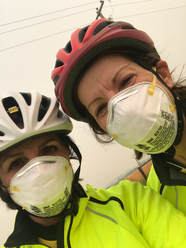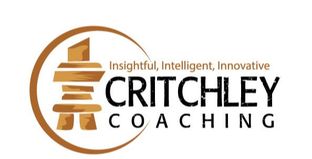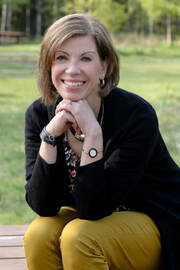
There is a mandatory minimum fundraising amount required from each participant who wishes to ride. Twenty-five hundred dollars. To me it seemed impossible. Added to that, my upbringing of never asking anyone for money ever, I was reluctant to get started. I know better than this. I know people want to help and they love to know they are contributing to some good in the world. And yet I still couldn’t contain my complete astonishment when six days after signing up, and asking for donations on Facebook, I had fifty-three hundred dollars. I’m still not sure I believe it.
The training was a different story. Even though I hadn’t known I would be in this ride, I had been training for my upcoming race in Whistler in September so when the invitation came to join a team on the ride, the physical part of it just seemed like it was very doable -and that it would be great training for Whistler. To be clear, the Ride to Conquer Cancer is hard. The website described a two-day event. One hundred kilometers each way, just east of the beautiful Rocky Mountains. The course was described as hilly, with a lot of climbing in the first twenty kilometres and then nice gently rolling hills. I knew I was trained. And I felt nervous but ready.
You can image my surprise on race morning when I arrived at the start to hear someone announce, ‘We’re almost ready to get started on this epic 120km each way ride!’ The crowd cheered! My training partner and friend, Rhonda and I looked at each other with that wide-eyed look of the shocked emoji. In fairness, when you’re standing among 1800 riders, some of whom have yellow flags on the back of their bikes signalling they have or have had cancer, it’s pretty hard to think that an extra twenty kilometres each day is a hardship. We knew we had nothing to complain about.
The unexpected factor was the smoke in the air from the forest fires burning in British Columbia. For the past two weeks, Alberta had been the recipient of some of this smoke which blew in on the jet stream. Day after day Jim and I had locked our windows tightly and avoided outdoor exercise. Every few days we would get a few hours of easy breathing air and then it was back to choking smoke. And yet the forecast had predicted that the smoke would let up overnight on Friday and that Saturday the risk factor would be low. Sunday was forecast for showers; this always helps with smoke.
When I woke up early Saturday morning to go pick up Rhonda and be at the start by 6:30, the smoke was awful. It was far worse than it had been the past few days, and those days had not been good. I wondered if the race would proceed.
The start of the race was overwhelming. I was overwhelmed seeing the yellow flags, indicating the wide-reaching impact of cancer. I was overwhelmed seeing the wife of the man who headed our team, in tears, knowing he was going to try to ride but that he would not make it far. I was overwhelmed to see his daughter and his grandchildren and his brother and sister-in-law out in the early morning light supporting him. I was overwhelmed to feel the energy. I was overwhelmed to have been asked to join. I was overwhelmed at the smoke.
As we biked along on Saturday morning, the mountains completely invisible because of smoke, riders disappearing into the smoke in front of us and finding it harder and harder to breathe, we said more than once, “If only we could get a breath of fresh air”. The construction masks we donned helped but by kilometre 75, when we were told that the road had been closed, while our hearts were disappointed, our lungs were relieved.
The next day the smoke continued and I mentioned more than once that if only we’d been able to get a breath of fresh air, we would have been ok.
On Monday morning I sent a letter to our team leader, thanking him for including me, thanking him for his grit in dealing with his unwelcome visitor called cancer, and letting him know I was disappointed we couldn’t finish the ride. His reply, thanking me for my ride, let me know that we, those other four members of his team, were his breath of fresh air that smoky Saturday morning.
This past week, in our neighbouring province of Saskatchewan, a farmer, Brian Williams died the day before our race with his crops still in the field. On Sunday, neighbours arrived in droves to harvest his 258-acre field of durum wheat. Twenty combines drove in a V-formation and over one-hundred volunteers were on hand to help. The job was complete in just a few hours. I am guessing there was a lot of dust kicked up by those combines. And I’ll be they were such a breath of fresh air for Brian William’s family.
My inquiry for you this week, ‘How can I be a breath of fresh air?’
Elizabeth is a life and leadership coach in Calgary, AB. She provides leadership coaching for individuals and groups and she creates and facilitates custom workshops for corporate, public and private groups. Contact Elizabeth to help you or your organization to figure out how to bring a breath of fresh air to your life or to your life’s work.


 RSS Feed
RSS Feed